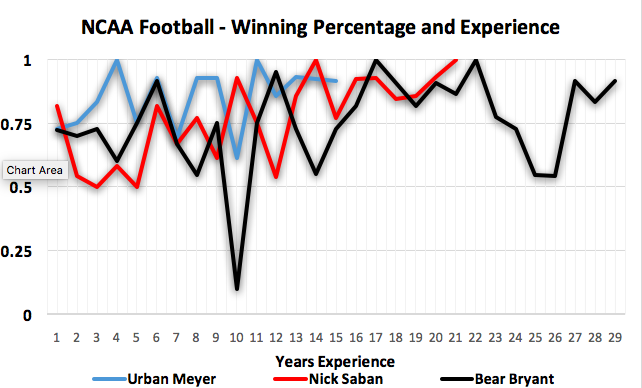
Side Hustles: A Unique Way To Pursue Your Passion
Today’s newsletter focuses on the idea of “Side hustles.” Here are three examples:
- While observing Xavier University’s baseball program this fall I was speaking to their volunteer assistant, Kyle Sprague. He reported to the office between 9:00-9:30 a.m. most mornings. This allowed him to drive Uber from 5:30am-8:30am during rush hour. Following Xavier’s amazing season, Kyle is now a full-time assistant at the University of Cincinnati.
- A great friend of mine, Chad Evans, was working for the Department of Defense in the accounting department. During the evenings and weekends he and a friend began cutting grass; two years later his full-time job was costing them money. He quit the job with the DOD and expanded the landscaping business. Today, the company does over five million a year in revenue and has 43 full-time employees.
- My mother wanted to get a full-time teaching job when my brother and I started school. She worked as a substitute teacher and as a teller at the Meadows which, at that time, was a harness horse racing venue. Eventually, mom landed a full-time teaching job but kept her hustle with the meadows. She worked four to five shifts a week as a teller while being a teacher. Crazy!
There are three buckets that side-hustles fall into:
- Entrepreneur: the entrepreneur has an idea and organizes the vision into a business. In coaching, the entrepreneur would likely start with lessons, expand into clinics and eventually into a larger academy or school. In my opinion, this is the most beneficial “hustle” because while earning money, there are secondary benefits created such as:
- Sharpening Your Sword- With every lesson you are learning new ways to instruct and reach kids; this is easily transferable to your players.
- Exposure for the program- If done properly, this is great marketing for the university or school. It has the potential to pay dividends in recruiting.
- Continual Learning- You will need to study and research what is going on in the industry. This knowledge base will help in many ways
- The Job: This is when you need extra income to keep you moving. Examples could be: driving Uber, waiting tables, bartending, and delivering papers. People looking for a job are oftentimes trying to pay the bills while they pursue their dreams.
- The Volunteer: This person likely has a very stable career or business; however, they still want to be involved in their passion. I’ll give two quick examples:
- Eric Shafer, a friend of mine who is a cardiovascular doctor, coaches a 13-year-old baseball team in the Chicago area. He has three young girls, but he makes time to teach baseball and life to teenage boys.
- My longtime friend and business partner, Chad Spence, is a successful attorney but still trains collegiate basketball players for free.
While both Eric and Chad are extremely generous, they will tell you that they get more benefit than those they serve.
As you can probably tell, I am a huge proponent of side-hustles. For one thing, I truly believe we are not on this earth simply to exist. I am at my best when I am creating and trying to add value to other’s lives. I think this is true for most people. I believe what happens frequently is we get so caught up in “making a living” that we lose that spark. Yes, you have to provide for yourself and your family, but would it be possible to do something on the side that reignites your spirit?
The Challenge
What stops most people from pursuing something they love on the side? Time. I get it, we are all very busy, but please don’t allow that to be your excuse. The one common thing, amongst all people, is the 86,400 seconds that we share in a day. The most impressive and successful people I know maximize their 86,400 seconds. Instead of complaining about the lack of time, they look for ways to be more efficient and effective. One strategy that works for me is to replace “I don’t have time” with “I have other priorities.” This simple shift in perspective empowers you to take control of your time and it gives you ownership of your decisions. Want to be an outlier? Resolve to never complain about time or being “so busy.” Take control of your time and your life.
Is there something you’ve always wanted to pursue but for whatever reason you haven’t been able to start? Is there a way that this week you could take one small step toward making it happen? This week, take that step and I will as well. Let’s be different.
Final Thoughts:
I know many people reading this are struggling in some capacity with their current life situation. Maybe some of you are stuck in a dead end job but the money has you trapped. Others, like many of my coaching friends, are wondering how long they can continue with the low-wages and lack of opportunities. All I can say is I recognize and respect your situation. Fight the urge to give in to the negative mindset that many people fall into after years of disappointment. Today, I presented you with the idea of developing a side-hustle that can help get you on the right track. It’s not easy, nor will it be instant success and satisfaction. I do believe, however, it can be an energizing force that can assist you in your journey.
Take control of your time this week,
Mike
P.S.
Could you please share with me how you are currently or previously using side-hustles in your life? I would love to hear your story.



